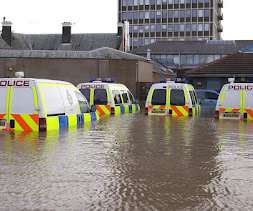A Resilience Charter
Emergency Planning
MARCH 23, 2022
Safety’ refers to protection against major hazards such as storms, floods and industrial explosions. The term ‘civil protection system’ describes coordinated national, regional and local arrangements designed to plan for, manage and respond to major emergencies, and to initiate recovery from them.













Let's personalize your content